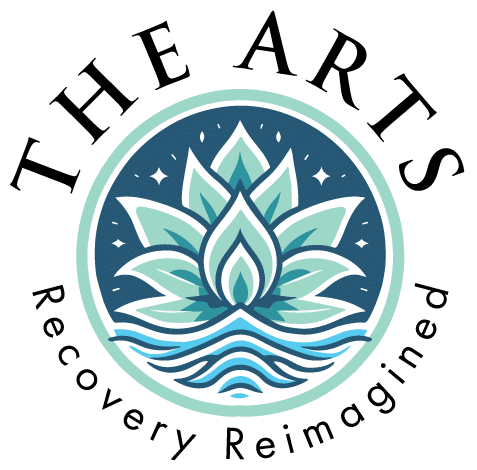When a person drinks alcohol, it is immediately absorbed into the bloodstream and then transported to all parts of the body. Because it is circulated to all aspects of the body, all organs in the body are affected. Drinking alcohol has societal and cultural importance, but the effects can be devastating if consumed in large amounts. According to CDC, excessive alcohol intake led to over 140,000 deaths in the United States between 2015 – 2019. Furthermore, 1 in 5 adults between 20 and 49 reportedly died from excessive drinking. This speaks of the danger of drinking beyond the recommended amount. The effects of alcohol abuse outweigh whatever importance is attached to alcohol drinking.
Alcohol abuse is excessive drinking that can cause several physical, mental, and social problems. Alcohol abuse is a precursor to alcohol addiction, typified by the inability to stop drinking. A person has alcohol use disorder if they drink more than intended for more extended periods, continue to drink despite the negative consequences, and neglect their responsibilities at work, home, or school.
ARTS IOP is a drug rehab in the San Fernando Valley. Contact us today to learn more about our IOP in LA.
How Does Alcohol Affect the Body?
Alcohol affects virtually all body organs. The affected organs include; the brain, liver, heart, pancreas, kidneys, and stomach. Note the effects vary according to the person’s body, age, and amount of consumption.
Brain
Alcohol impacts the prefrontal cortex, limbic system, and cerebellum, parts of the brain involved in cognitive processing, emotion regulation, communication, and movement coordination. When alcohol is consumed and circulated to all body parts, it disrupts the GABA neurotransmitter, a chemical substance that calms the nervous system. It also affects dopamine, another neurotransmitter associated with pleasure. The effect can induce euphoria and impair judgment. Over time, it can alter the structure and brain function if alcohol is continually consumed and affect communication, resulting in slower reaction times. It also leads to decreased cognitive reasoning and loss of coordination and balance and may interfere with sleep patterns.
Liver
Excessive drinking can potentially damage the liver. The enzymes in the liver metabolize alcohol and turn it into a digestive product. However, the liver can only metabolize a small quantity of alcohol at a time. This means the liver will struggle to convert the remaining amount, leaving excess alcohol circulating through the body. When the liver processes alcohol, it produces toxic byproducts that can cause inflammation.
Excessive alcohol consumption can also cause steatosis, a condition where fat is accumulated in the liver. The liver places more importance on alcohol metabolism over fat, causing fat to gather in the liver. Other effects of alcohol abuse include cirrhosis and hepatitis.
Heart
Heavy drinking can be responsible for many heart issues. The heart receives blood from the liver and pumps it to all body parts. When the liver sends contaminated blood, it can cause high blood pressure, cardiomyopathy, and stroke.
Pancreas
The pancreas helps in food digestion by producing hormones that regulate sugar levels in the blood. When alcohol is consumed, it causes the pancreas to produce a harmful chemical and the blood vessels to swell up, resulting in pancreatitis.
Kidneys
The kidney is arguably the body’s organ most affected by alcohol. The kidneys filter unwanted substances from the body. However, they struggle to remove alcohol if consumed in high quantities, leading to kidney disease. The organ also overworks itself if the liver is damaged, which increases the chances of developing kidney disease.
Stomach
When alcohol is taken, it causes the stomach to produce more acid than required, which leads to gastritis and acid reflux. Other effects of alcohol on the stomach include; diarrhea, vomiting, and ulcers.
What Are the Long-Term Effects of Alcohol Abuse?
Long-term alcohol consumption has been known to cause several health issues and organ damage. The health effects of alcohol abuse include;
- Erectile dysfunction
- Heart failure
- Gastritis
- Cirrhosis and other alcoholic liver diseases
- Central and peripheral nervous system damage
- For women, alcohol abuse can increase the risk of breast cancer
- Risky sexual behaviors, such as indulging in unprotected sex with multiple partners
- Weakening of the immune system, increasing the likelihood of getting sick
- Depression and anxiety
- Learning problems
- Dementia
- Poor school performance
- Alcohol dependence
These effects can be avoided if you reduce the amount of your alcohol intake. According to CDC, adults of legal drinking age should limit alcohol intake to 2 drinks or less per day for men and a glass or less for women per day. However, it is best recommended that you shouldn’t start drinking if you don’t drink before.
What to Look For in an Alcohol Rehab Center?
When looking for an alcohol rehab center, you must consider certain vital factors. These factors determine if the facility is suitable for you or your loved one. Below are some of them;
- Accreditation: An alcohol rehab center must be accredited by a recognized organization, such as CARF. Being certified by such an organization means the facility is up to par with the body’s standard of care and regulations.
- Specialization: Some alcohol rehab centers specialize in treating some forms of alcohol addiction or drug use disorder. Look for a center that specializes in treating your condition.
- Treatment programs: Alcohol Rehab centers offer treatment programs, such as partial hospitalization, intensive outpatient, or traditional outpatient. Ensure that the facility offers a program that provides adequate care for your personal needs.
- Staff qualifications: A rehab center with licensed and experienced medical professionals will cater to your addiction, provide the best care, and help you recover quickly.
- Treatment approach: Some rehab centers use the 12-step approach, while others use evidence-based approaches. Choose a facility that offers a treatment approach that’s tailored to you.
- Insurance: Addiction treatment isn’t typically affordable, especially if the level of addiction is severe. Check with the rehab center to see if they accept insurance or offer any payment plan to ease payment.
Selecting the right alcohol rehab center is vital, as it can impact your recovery. At ARTS IOP Center, we meet all criteria to bring you the best medical care. We provide recreational activities to help engage addicts as they recover from addiction. With our evidence-based treatment approach, you can recover completely from addiction and live more meaningfully. Reach out to us to learn more about our addiction treatment options in the San Fernando Valley.

